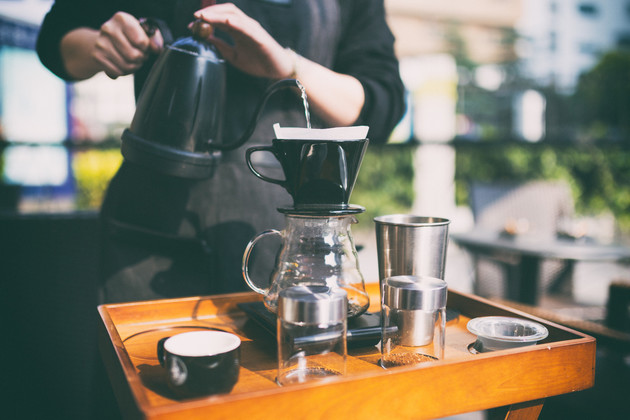
Photo/Shetuwang
Feb. 19 (NBD) -- Closing the Wudaokou cafe shop in Beijing, a long-standing landmark in the capital city, is the last thing Sculpting In Time (S.I.T.) would ever want to do, but the cafe chain did it anyway, pressured by massive rent increases.
A home-grown coffee brand in China, S.I.T. started its business as early as 1997. Once regarded as "Starbucks of China", the coffee chain won the heart of a large number of coffee lovers.
The storefront rental contract for the Wudaokou shop was originally signed every six years, but since 2016, the contract period has been shortened to three years. This year, the rent surged nearly 50 percent. This, plus personnel costs, raw materials expenses, and utility bills, eventually led to the shutdown of the Beijing-based cafe, S.I.T. said.
Currently, S.I.T. still runs tens of outlets across China. Due to poor management, the chain was entangled in many lawsuits and an increasing number of franchisees headed for exit in recent years.
Industry insiders remarked whether the closure of the Wudaokou store will trigger a domino effect remains to be observed, but S.I.T. is undoubtedly encountering increasingly fierce competition and more complicated environmental changes.
What happened to S.I.T. is just an epitome of the tough situation facing traditional coffeehouses.
For example, Caffe Bene (Shanghai) Investment Management, a wholly-owned subsidiary of the Chinese joint venture of Caffe Bene, South Korea's largest coffeehouse chain by the number of stores, went bankrupt last year.
Behind this is the tremendous impact brought by the new retail model.
The launch of coffee delivery services and small booth-based expansion is undermining the efforts of traditional coffee chains like S.I.T. and Starbucks in building cafes a "third place" for customers and reshaping the dynamics between coffee consumption and physical stores.
In contrast to struggling situation of traditional cafes, Luckin Coffee that follows the new retail trend is on a roll.
In early January, 2019, the coffee upstart announced the goal of opening 2,500 new stores to push up its total number of stores to over 4,500 by the end of this year and overtaking Starbucks as the largest coffee chain by number of outlets in China.
Last Tuesday, the firm said it aims to surge into another 18 large- and medium-sized cities by the end of April after building a presence in 22 cities over the course of last year.
Such rapid expansion will definitely require huge capital investment. Can Luckin manage to maintain business in a healthy and sustainable way?
In early 2018, Luckin announced a strategy of opening different types of stores to meet diverse customer needs. The company's stores are a mix of large "Elite" and "Relax" stores for offline social networking demand, "Pickup" stores for business people and "Kitchens" for delivery purposes.
The introduction of smaller booths helps change the cost structure, Luckin's founder and CEO Qian Zhiya said.
But in fact, whether Luckin can grow bigger while keeping small largely depends on the cultivation of coffee drinking habits among Chinese consumers.
Email: lansuying@nbd.com.cn


 川公网安备 51019002001991号
川公网安备 51019002001991号





